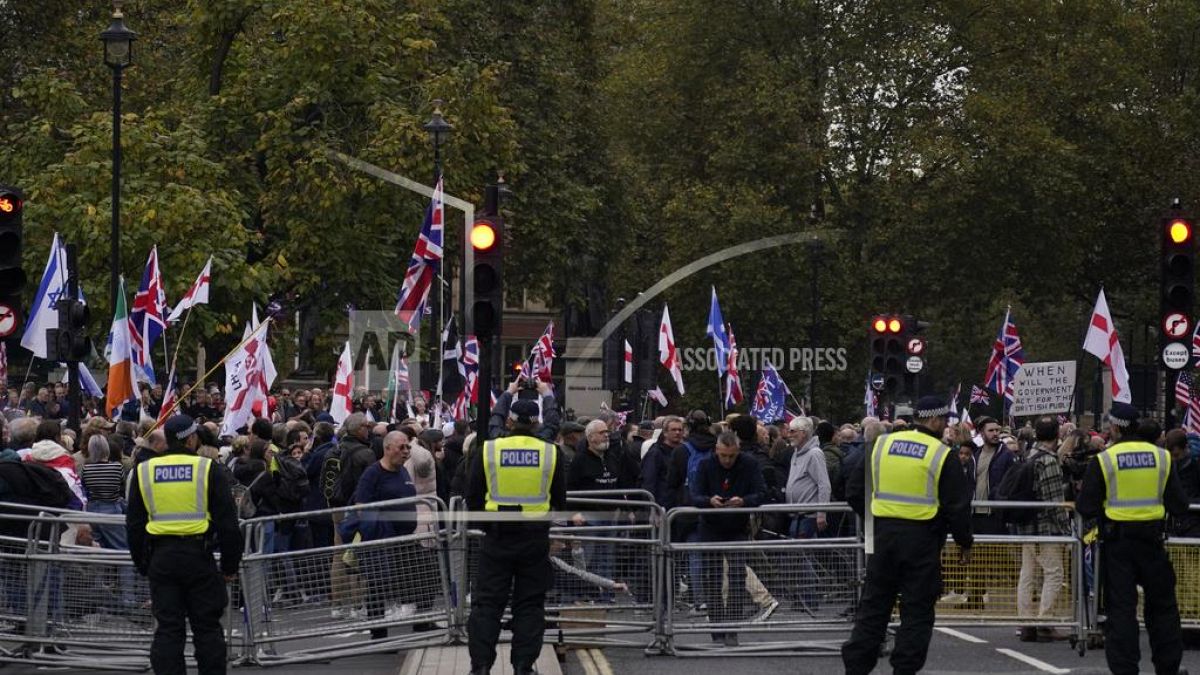Thousands of supporters of Tommy Robinson, the far-right activist and founder of the English Defence League, marched through London on Saturday under the banner of ‘Uniting the Kingdom’. The march, organized by Robinson himself, aimed to call for his freedom following his arrest on a warrant for contempt of court. The crowd, made up mostly of white men, held Union and England flags, as well as “Make America Great” banners. The protest was met with a counter-protest organized by the group Stand Up to Racism, with signs proclaiming “Refugees welcome” and “Oppose Tommy Robinson”.
Robinson, also known as Stephen Yaxley-Lennon, has been a prominent figure in far-right politics in Britain. His nationalist and anti-Islamist views have drawn both significant support and backlash. The protest comes in the wake of a series of violent protests across England and Belfast, sparked by false claims made on social media. Robinson’s supporters have criticized the jailing of rioters who engaged in violence against police officers, set fires, and made racist attacks. The tensions surrounding Robinson and his supporters highlight the deep divisions that exist within British society on issues of race and immigration.
Critics of Robinson argue that his inflammatory rhetoric has contributed to a culture of hate and intolerance in Britain. They point to incidents such as the violent protests following the false identification of a suspect in a stabbing rampage as evidence of the dangerous consequences of spreading misinformation. Robinson’s supporters, however, see him as a voice for the unheard, advocating for the preservation of British identity and values in the face of what they perceive as a threat from outsiders. The clash between these opposing viewpoints has led to increased polarization and tension within British society.
The Unite the Kingdom march is just the latest chapter in the ongoing controversy surrounding Tommy Robinson. Despite his imprisonment, Robinson remains a potent force in far-right politics, with a dedicated following of supporters who see him as a champion of their cause. The large turnout at the protest demonstrates the level of support he commands within certain segments of British society. However, the presence of counter-protesters also highlights the opposition to his views and the deep-seated disagreements that exist on issues of race, immigration, and identity.
As the debate over Tommy Robinson and his far-right agenda continues to simmer, it is clear that the divisions within British society are far from being resolved. The clash between his supporters and detractors underscores the challenges of navigating a multicultural and diverse society, where competing interests and beliefs often come into conflict. The protests in London serve as a stark reminder of the need for open and honest dialogue to address the underlying issues that have fueled the rise of figures like Robinson and the deepening divisions within British society. Only by engaging with these complex and contentious issues can the country hope to move forward towards a more inclusive and harmonious future.










